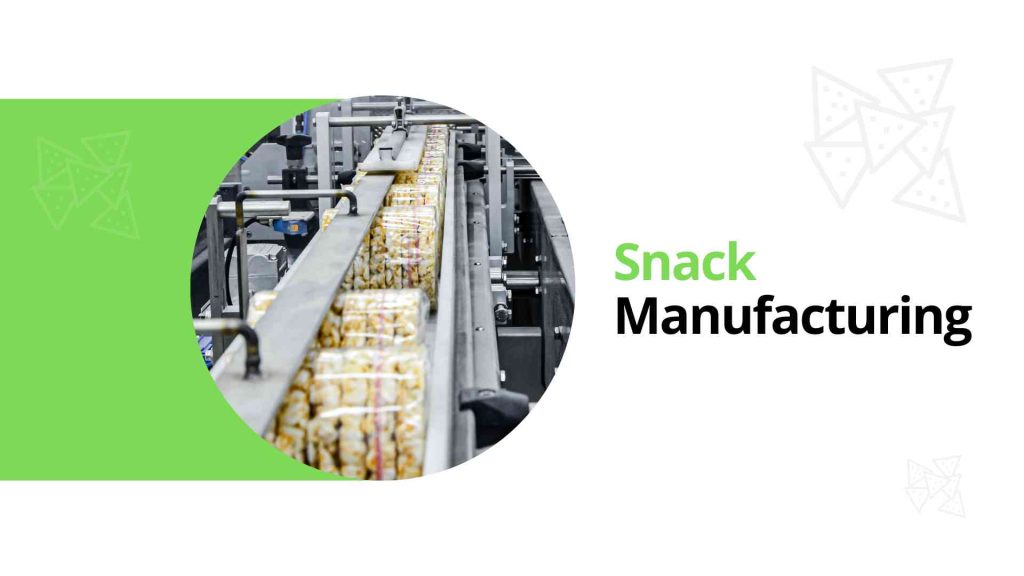Snack foods have become an integral part of modern lifestyles, catering to the fast-paced demands of individuals seeking convenient and flavorful sustenance. The snack foods industry has evolved significantly from potato chips and popcorn to energy bars and exotic vegetable crisps. However, with this evolution come unique challenges and emerging trends that shape the manufacturing landscape. We delve into snack food manufacturers’ challenges and explore new trends reshaping the industry.
Types of Snacks Available in the Market
The Market is categorized into the following types that held the largest Healthy Snack market share In 2023.
- Cereal and Granola Bars
- Nuts and Seeds Snacks
- Meat Snacks
- Dried Fruit Snacks
- Trail Mix Snacks
Regions are leading the Healthy Snack Manufacturing Market
- North America (United States, Canada)
- Europe (Germany, UK, France, Italy, Russia, Turkey)
- Asia-Pacific (China, Japan, Korea, India, Australia, Indonesia, Thailand, Philippines, Malaysia and Vietnam)
- South America (Brazil, Argentina, Columbia, etc.)
- Middle East and Africa (Saudi Arabia, Nigeria and South Africa)
Challenges in Snack Foods Manufacturing
- Health and Wellness Concerns: Recently, there has been a notable shift in consumer preferences towards healthier snack options. This trend has posed a challenge to traditional snack food manufacturers, who often rely on ingredients that may not meet health-conscious consumer demands. Manufacturers are now faced with reformulating recipes and sourcing healthier ingredients without compromising taste and texture.
- Clean Label and Transparency: Modern consumers are more interested than ever in understanding what goes into their food. They demand transparency in ingredient sourcing and production processes. Manufacturers must navigate this demand for clean labels while maintaining the flavors and characteristics consumers associate with their favorite snacks.
- Sustainability and Packaging: The environmental impact of snack food packaging has gained attention, prompting manufacturers to explore sustainable packaging solutions. Balancing shelf life, consumer convenience, and ecological concerns presents a significant challenge as manufacturers seek to reduce waste and carbon footprint while ensuring product quality.
- Allergen Management: With the rise in food allergies and intolerances, snack food manufacturers must be vigilant about managing allergen cross-contamination. Ensuring products are safe for individuals with allergies requires rigorous production processes and thorough testing.
- Supply Chain Disruptions: The COVID-19 pandemic highlighted the vulnerability of global supply chains. Snack food manufacturing relies on a steady supply of ingredients, and any disruptions can lead to production delays and increased costs. Manufacturers are exploring building more resilient supply chains to mitigate future risks.
New Trends Shaping Snack Foods Manufacturing
- Plant-Based and Alternative Ingredients: The growing interest in plant-based diets has driven the demand for snacks from alternative ingredients such as legumes, ancient grains, and algae. This trend pushes manufacturers to innovate and create products catering to traditional and plant-based consumers.
- Functional and Nutrient-Dense Snacks: Consumers seek snacks with great taste and nutritional benefits. Snacks infused with vitamins, minerals, and active ingredients like probiotics or adaptogens are gaining traction as consumers seek ways to incorporate health into their snacking habits.
- Smart Manufacturing and Automation: Industry 4.0 technologies, such as automation, data analytics, and AI, are transforming snack foods manufacturing. These technologies improve efficiency, reduce production costs, and enable better quality control, allowing manufacturers to meet the demands of a competitive market.
- Personalization and Customization: Snack food manufacturers are exploring ways to offer personalized and customizable options to consumers. From allowing customers to select their preferred flavors and ingredients to providing tailored portion sizes, customization is becoming a trend that enhances consumer engagement.
- Global Flavors and Experiences: Consumers are increasingly adventurous with their snack choices, seeking unique flavors and experiences worldwide. Manufacturers are capitalizing on this trend by introducing global-inspired snacks that provide a taste of different cultures.
Snack food manufacturing continues to be a dynamic and evolving industry, shaped by consumer preferences, health considerations, and technological advancements. While health concerns, sustainability, and supply chain disruptions persist, new trends like plant-based ingredients, functional snacks, and intelligent manufacturing are reshaping the landscape. To thrive in this ever-changing environment, snack food manufacturers must remain agile, innovative, and attentive to the evolving needs of their diverse consumer base.
Cloud ERP as a Catalyst for Business Growth
Acumatica ERP for snack food manufacturing is a transformative solution that enhances every facet of the production process. By seamlessly integrating various operations, from inventory management and production scheduling to quality control and distribution, Acumatica Cloud ERP streamlines workflows, reduces inefficiencies and improves overall productivity.
Its real-time data insights give manufacturers the tools to make informed decisions, adapt to shifting consumer demands, and optimize inventory levels. Additionally, the system’s capacity for traceability ensures compliance with stringent regulations and empowers manufacturers to maintain the highest quality and safety standards.
In a landscape marked by evolving consumer preferences and intricate supply chains, Acumatica ERP emerges as a potent catalyst for operational excellence and fostering innovation and responsiveness in the dynamic world of snack food manufacturing. Are you Searching for a Customized ERP solution for your snack food manufacturing? Contact us for a demo. Read our Related Blog: unraveling-the-secrets-of-snack-food-manufacturing.

Sangeetha brings 20 years of experience in Information Technology which includes Solution architecting, building micro services, research, and evaluation of business applications, integrating apps.

